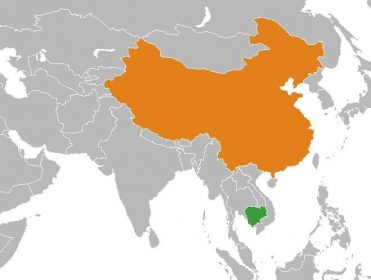Thousands of Chinese Online Gambling Workers Exit Cambodia as Ban Enacted
More than 10,000 Chinese nationals working on China-facing online-gambling sites are reported to have quickly pulled up their stakes in Cambodia as that country enacts a blanket ban on the industry.
According to Asian Gaming Today, some 10,000 Chinese nationals working in the Cambodian city of Sihanoukville, a coastal casino destination city where many online operations are also located, have departed in recent days or are planning to depart the region.
 The “exodus”, as it’s been termed, follows Cambodia’s announcement that it will ban all online-gambling operations in the country, which will go into effect early in 2020. Virtually all of the Cambodia-based sites are illicit operations owned and staffed by Chinese nationals, who offer the sites’ services to China’s massive population, even though such gambling is strictly illegal under Chinese law.
The “exodus”, as it’s been termed, follows Cambodia’s announcement that it will ban all online-gambling operations in the country, which will go into effect early in 2020. Virtually all of the Cambodia-based sites are illicit operations owned and staffed by Chinese nationals, who offer the sites’ services to China’s massive population, even though such gambling is strictly illegal under Chinese law.
Thousands more Chinese nationals working in the illicit China-facing industry were reported to be making similar exits from the Cambodian cities of Bavet and Poipet.
The Cambodian move likely comes at the behest of China, which continues to exert its influence throughout the region in an attempt to curtail all forms of online gambling. China also attempted to pressure the nearby Philippines into closing that country’s online-gambling industry, for much the same reason: a heavy concentration of China-targeting sites operating in violation of Chinese law.
The pressure being placed on Cambodia, the Philippines, and likely other countries in Southeast Asia, is somewhat different than the country’s internal ban on poker apps. Though that ban made news in poker circles last year, it was an intra-China issue and actually much smaller in financial scope than the thousands of Chinese-language sites the country hopes to wipe out.
The Cambodian ban, as pressured by China, actually bears some similarities to the United States’ passage of the Unlawful Internet Gambling Enforcement Act (UIGEA) back in late 2006. In both instances, the actions taken by the larger, more influential countries targeted quasi-legal operations going on outside their own borders. The US didn’t have strict federal laws against online gambling and actually broke its own WTO trade agreements by implementing the UIGEA, but the effect was mostly felt outside the US: Antigua’s online-gambling industry took a huge hit, and other countries such as Costa Rica suffered as well.
Cambodia is likely to face a Costa Rica-like shift in its economy, though in this case the sites have been in blatant violation of China’s national laws all along. Nonetheless, the demand by Chinese gamblers for access to online sites is so strong that thousands of such sites have operated for nearly two decades. Despite the Cambodian ban, it is not at all clear that China will be successful in its larger goals.




















COMMENTS